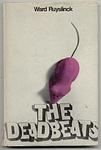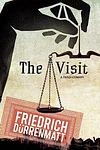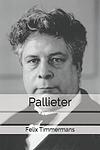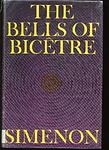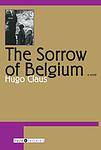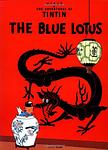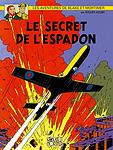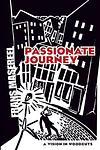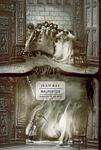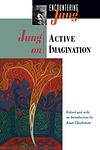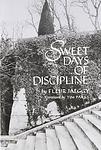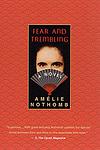The Greatest Belgian, Swiss "Fiction" Books Since 1900
Click to learn how this list is calculated.
This list represents a comprehensive and trusted collection of the greatest books. Developed through a specialized algorithm, it brings together 300 'best of' book lists to form a definitive guide to the world's most acclaimed books. For those interested in how these books are chosen, additional details can be found on the rankings page.
Genres
Countries
Date Range
Reading Statistics
Click the button below to see how many of these books you've read!
Download
If you're interested in downloading this list as a CSV file for use in a spreadsheet application, you can easily do so by clicking the button below. Please note that to ensure a manageable file size and faster download, the CSV will include details for only the first 500 books.
Download-
1. I'm Not Stiller by Max Frisch
The book is a profound exploration of identity and the human condition, revolving around a man who is arrested upon his return to his home country, Switzerland, after spending time in America. Although he insists he is not the man, Stiller, that everyone believes him to be, his protests are ignored. The story unfolds as he writes in his prison cell, reflecting on his past life and relationships, and grappling with the question of who he truly is. It's a thought-provoking narrative that challenges conventional notions of selfhood and personal identity.
-
2. Jakob Von Gunten by Robert Walser
This novel is a first-person account of a young man who leaves his privileged life to enroll at a school for servants in Berlin. The protagonist's observations and experiences in the school, his interactions with the headmaster and other students, and his internal struggles and reflections form the crux of the story. The narrative, imbued with irony and dark humor, explores themes of power, submission, individuality, and the absurdity of societal norms and expectations.
-
3. Belle du Seigneur by Albert Cohen
"Belle du Seigneur" is a tragic love story set in the 1930s, revolving around a high-ranking Jewish official who works for the League of Nations and his passionate affair with a married Swiss aristocrat. The narrative delves deep into their intense relationship, exploring themes of obsession, self-destruction, and existential despair, all set against the backdrop of the impending Second World War. The novel is also notable for its satirical portrayal of diplomatic life and its exploration of Jewish identity.
-
4. Homo Faber by Max Frisch
"Homo Faber" is a novel about a man named Walter Faber, a highly rational and logical Swiss engineer who believes strongly in technology and progress. His life is turned upside down when he survives a plane crash in the Mexican desert, falls in love with a young woman who turns out to be his daughter, and then loses her to a tragic death. This series of events forces him to question his faith in technology and confront the irrationality of life.
-
5. Cheese by Willem Elsschot
The novel revolves around a Dutchman living in Antwerp, Belgium, who is persuaded by his brother to enter the cheese business. He invests in 10,000 full-cream cheeses and sets up an office, but struggles to sell any of his stock. As he grapples with the nuances of the cheese trade, his personal life and professional relationships also begin to crumble, leading to a series of comical and tragic events. The book is a satirical commentary on business, ambition, and the absurdity of life.
-
6. Moravagine by Blaise Cendrars
The novel follows the adventures of an eccentric, violent, and mentally unstable protagonist who is released from an asylum by his psychiatrist. The pair embark on a chaotic journey across Europe and America, encountering a variety of strange and often dangerous situations. The narrative explores themes of insanity, violence, and the human condition, offering a dark and surreal critique of modern society.
-
7. The Pledge by Friedrich Dürrenmatt
This book is a gripping crime story that delves into the complexities of human nature and the limitations of the justice system. It follows the journey of a retired police detective who becomes obsessed with solving the murder of a young girl, promising the victim's parents to find the perpetrator. As he delves deeper into the investigation, his methods become increasingly unconventional, straying from standard police procedure and relying instead on a meticulously crafted plan to catch the killer. The narrative challenges the conventional detective story format, exploring themes of obsession, the unpredictability of life, and the moral ambiguities of justice, ultimately questioning whether the ends justify the means in the pursuit of truth.
-
8. Man in the Holocene by Max Frisch
The book is a narrative about an elderly man who, isolated in his home during a rainstorm in the Swiss Alps, reflects on his life, mortality, and the human condition. The protagonist spends his time reading encyclopedic entries and clipping them to his wall, creating a mosaic of human knowledge and history. The narrative is interspersed with these entries, presenting a blend of fiction and non-fiction, and exploring themes of memory, time, and the fleeting nature of human existence.
-
9. The deadbeats: a novel by Ward Ruyslinck
"The Deadbeats" is a gripping novel that follows the story of a man who, after losing his wife and job, descends into alcoholism and homelessness. The narrative delves into the harsh realities of life on the streets, exploring themes of despair, survival, and the human capacity for resilience. Despite the protagonist's struggles, the book also highlights moments of compassion and camaraderie among society's outcasts.
-
10. The Judge and His Hangman by Friedrich Dürrenmatt
This book is a crime novel set in Switzerland, where a police lieutenant is tasked with solving the murder of his former colleague. The narrative explores themes of justice, revenge, and the blurred lines between good and evil. The lieutenant, despite being terminally ill, is determined to solve the case and in the process, he uncovers a web of corruption and deceit that forces him to question his own morality and the nature of justice. The story is a philosophical examination of the criminal justice system and the moral dilemmas faced by those who enforce the law.
-
11. Pallieter by Felix Timmermans
"Pallieter" is a classic Flemish novel that depicts the life of a jovial and life-loving man, Pallieter, who lives in harmony with nature in a small Belgian town. The story showcases his love for the simple pleasures of life, his interactions with the townsfolk, and his deep connection with the natural world. However, when industrialization threatens his idyllic lifestyle, Pallieter decides to leave his beloved town. The novel is a celebration of life and nature, while also exploring the impact of industrialization on rural life.
-
12. The bells of Bicêtre by Georges Simenon
The novel chronicles the life of a successful newspaper publisher who suffers a stroke and finds himself confined to a hospital bed, unable to communicate with the world around him. As he lies in his hospital bed, he is forced to reassess his life, his relationships and his own identity. The book explores themes of mortality, the meaning of life, and the complex nature of human relationships.
-
13. The Sorrow of Belgium by Hugo Claus
"The Sorrow of Belgium" is a coming-of-age story set against the backdrop of World War II. The narrative follows the life of a young boy in a Flemish town, as he navigates through the complexities of adolescence, family relationships, and the harsh realities of war. The novel provides an insightful exploration of Belgian history, culture, and the nation's struggle under the Nazi occupation, all through the eyes of the protagonist.
-
14. The Blue Lotus by Hergé
In "The Blue Lotus," a young reporter is sent on a mission to Shanghai during the Sino-Japanese War, where he uncovers a dangerous opium trafficking operation. Along the way, he befriends a Chinese boy who helps him navigate the cultural and political complexities of the region. The story combines elements of adventure, mystery, and political intrigue, set against the backdrop of historical events.
-
15. The Strange Case of Peter the Lett by Georges Simenon
This classic crime novel centers around a man named Peter the Lett, who is suspected of committing a series of murders in Paris. He is a foreigner, a loner, and has a mysterious past, which makes him the perfect suspect for the crimes. However, as the investigation unfolds, it becomes clear that the truth is far more complex. The narrative delves into themes of identity, prejudice, and the nature of guilt and innocence, offering a psychological portrait of a man caught in a web of circumstances beyond his control.
-
16. Blake and Mortimer by Edgar P. Jacobs
"Blake and Mortimer" is a comic series centering on two British heroes, a military intelligence officer and a nuclear physicist. The pair often find themselves embroiled in various international intrigues, battling against super-powered villains, alien invaders, and ancient civilizations. The series is known for its detailed artwork and complex plots, often involving science fiction and paranormal themes.
-
17. Margot and the Angels by Kristien Hemmerechts
"Margot and the Angels" is a poignant story about a woman who, after losing her husband and children in a car accident, is left to navigate life on her own. As she grapples with her grief, she finds solace in the company of three angels who appear to her. The angels help her make sense of her tragedy, guiding her towards acceptance and healing. The book explores themes of loss, grief, resilience, and the power of faith, offering a compelling exploration of the human capacity to endure and find hope amidst despair.
-
18. Passionate Journey by Frans Masereel
"Passionate Journey" is a silent graphic novel that tells the story of a man's life and experiences through a series of woodcuts. Without the use of words, the book conveys a powerful narrative that explores the human condition, society, and the range of emotions that one encounters throughout life. The protagonist's journey is depicted in a sequence of compelling images that reflect on themes such as love, struggle, joy, and the search for meaning. The novel's visual storytelling invites readers to interpret and imbue the images with their own understanding, making it a unique and personal experience for each individual who engages with it.
-
19. Red Lights by Georges Simenon
"Red Lights" is a psychological thriller that delves into the unraveling of an American couple's marriage against the backdrop of a road trip from New York to Maine. As they set out to pick up their children from camp, the husband's penchant for alcohol and the couple's underlying tensions escalate. After a series of bar stops and a fateful decision to pick up an escaped convict, the journey spirals into a nightmarish ordeal. The narrative explores themes of existential dread, personal responsibility, and the search for redemption, as the characters confront their inner demons and the consequences of their choices under the strain of extraordinary circumstances.
-
20. Malpertuis by Jean Ray
"Malpertuis" is a gothic novel that weaves together the surreal and the macabre, telling the story of a mysterious and ancient house in Belgium that is as much a character as the people inhabiting it. The narrative unfolds through the eyes of a young man who becomes entangled in the enigmatic and often disturbing events within the walls of Malpertuis. As the story progresses, it becomes clear that the house is a labyrinthine trap for a pantheon of gods who have dwindled in power and are now imprisoned in mortal forms by the dying will of an old and cunning man. The novel blends mythology, horror, and philosophy, creating an unsettling and dreamlike atmosphere that questions the nature of reality and the gods' place in the modern world.
-
21. The Visit by Friedrich Dürrenmatt
The narrative revolves around the return of a wealthy woman to her impoverished hometown, where she offers the residents a disturbing proposition: a vast fortune in exchange for the life of the man who wronged her in her youth. As the townspeople's initial horror gives way to the corrupting influence of the promised wealth, moral integrity collapses, leading to a dark and cynical exploration of human nature, justice, and revenge. The story serves as a powerful commentary on the capacity for greed to erode community values and the price of justice in a world governed by materialism.
-
22. Two Essays on Analytical Psychology by Carl Jung
This book contains two comprehensive essays that delve into the depths of analytical psychology. The first essay explores the role of the unconscious in the human psyche, discussing its influence on dreams, mythology, and mental illnesses. The second essay delves into the process of individuation, which is the psychological process of integrating the conscious and unconscious parts of the mind to achieve self-actualization. This work is a foundational text in understanding the theories and concepts of analytical psychology.
-
23. Hygiene And The Assassin by Amélie Nothomb
The book revolves around the final days of a Nobel Prize-winning author who, after being diagnosed with a terminal illness, agrees to a series of interviews having shunned public attention for decades. Known for his misanthropy and biting intellect, the author engages in verbal sparring with the journalists, each encounter more intense than the last. However, when a particularly astute and persistent female journalist enters the fray, the conversation takes an unexpected turn, leading to startling revelations about the author's past and the true nature of his controversial works. The narrative delves into themes of truth, deception, and the power dynamics inherent in the creation and interpretation of literature.
-
24. Sweet Days of Discipline by Fleur Jaeggy
The novel is a haunting tale of a young girl's experiences at a Swiss boarding school in the post-World War II era. The protagonist becomes infatuated with a fellow student, leading to an exploration of intense emotions, obsession, and the harsh realities of discipline and conformity within the rigid structure of the school. The narrative is characterized by its stark, minimalist prose and its exploration of themes such as loneliness, desire, and the loss of innocence.
-
25. Fear And Trembling by Amélie Nothomb
The book is a psychological exploration of the clash between Western and Eastern business cultures, as seen through the eyes of a young Belgian woman working for a major Japanese corporation in Tokyo. The protagonist's initial fascination with the company's traditional Japanese corporate culture turns into a harrowing psychological ordeal as she confronts extreme work ethic, rigid hierarchies, and the challenge of maintaining her identity in the face of overwhelming conformity. Through her experiences, the novel delves into themes of alienation, the search for self, and the often surreal nature of cross-cultural encounters.
Reading Statistics
Click the button below to see how many of these books you've read!
Download
If you're interested in downloading this list as a CSV file for use in a spreadsheet application, you can easily do so by clicking the button below. Please note that to ensure a manageable file size and faster download, the CSV will include details for only the first 500 books.
Download







